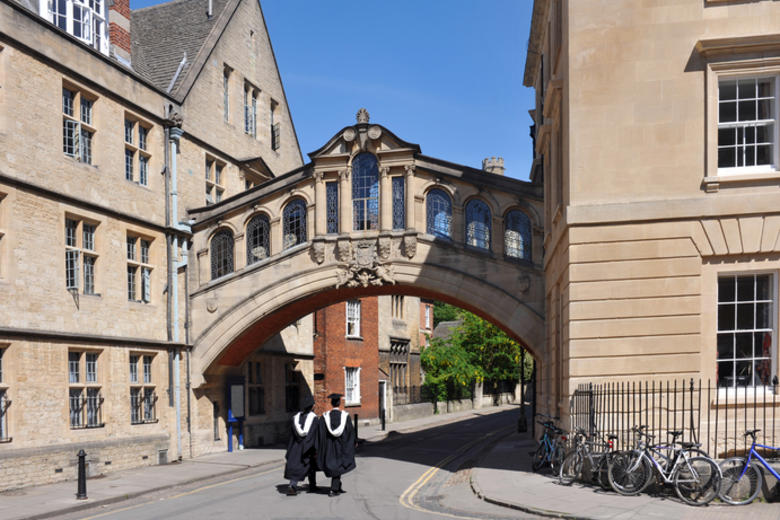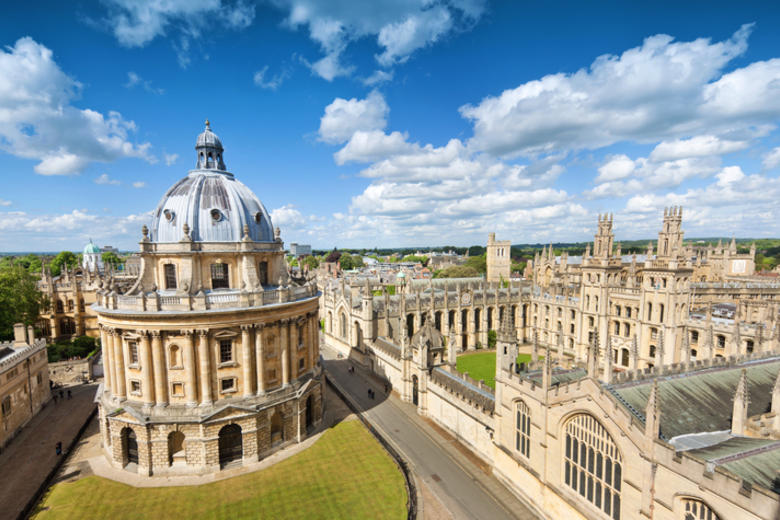THE ROLE OF OXFORD’S CHANCELLOR

THE ROLE OF OXFORD’S CHANCELLOR
Notes for 26,000 alumni voting for the next Chancellor, 800 years after the first
Published: 16 October 2024
Author: Richard Lofthouse
Share this article
During 7th Week, beginning Sunday November 24, we’ll have a new Chancellor for the University. Prompted by Civica, the entity responsible for an online election, the University will announce its new Chancellor, approximately the 160th to hold the office.
‘Approximately’, because while the University records Robert Grosseteste as the first in 1224, Emeritus Professor of History at Oxford Laurence Brockliss says that there might have been an earlier one. In his brilliant single volume history of the University (OUP, 2016), Brockliss says that the 1214 Papal settlement of Oxford’s status mentions already ‘a Scholars’ chancellor’, possibly a theologian called John Grim.
But everyone agrees that the office of Chancellor has been filled continuously since 1224 which is exactly 800 years ago - a rich historical fact that should inform this election.
Before considering the role and its history, however, what’s different about this election?
The obvious difference is the size of the field of applicants and the size of the electorate, both sharply up. We have nearly 40 applicants and over 26,000 registered alumni voters, besides the rest of Convocation, which adds over 5,000 more.
In 2003 the ballot was just over 8,000 in both rounds of voting, which was in-person only, and there were just four nominated candidates, the eventual winner of course Chris Patten (Lord Patten of Barnes, Balliol, 1962). Go back one more to 1987, again with four nominated candidates, and voters had to wear academic dress. The victor Roy Jenkins (Lord Jenkins of Hillhead, Balliol, 1938) stationed his minions with piles of gowns to lend out, just in case his supporters came under-dressed. So the other winner in the contest was gown maker Castells of Oxford.
The other conspicuous feature of 2024 is that we have a global election thrown open to the whole world, an experiment in large-scale democracy. Based on the advertised exclusion criteria, some candidates might not progress through to the voting stage if they are: a student of the University, an employee of the University, a serving member or candidate for an elected legislature, or disqualified from being a charity trustee by virtue of section 178 of the Charities Act 2011, extending to being a ‘fit and proper person’ as determined by His Majesty’s Revenue & Customs.
There is a strong overall diversity, including contenders who would be the first-ever female Chancellor. Fewer than half of them are former students of Oxford. Just five go through to the second round of voting in November.
Civica will explain at the point of voting how voters can rank their choices so as to vote for more than one candidate if they wish, via the Alternative Vote method. It is interesting to note that the voting method has also changed throughout history.
In 1987, Roy Jenkins, perceived at the time to be the radical candidate, was victorious in a first-past-the-post set up that split the ‘Tory vote’ and left some fuming that that the winner should have been Robert Blake (Lord Blake, Magdalen, 1934) or Edward Heath (Balliol, 1936). In 2003 there was a version of the 2024 approach in place, but voting remained in-person.
2024 is a different, more globally-connected, on-line world, but not so much as to be unrecognisable. Candidates are not defined by political party affiliation and Oxford has evolved to be still a highly important university for the UK (over 80% of its undergraduates are domiciled in the UK) but also an internationally competitive one on the world stage.
In fact, the winning edge of Oxford, according to the folks at the Times Higher Education Supplement who in October awarded Oxford its ninth consecutive Number 1 Ranking in the world out of 2,092 universities from 115 countries, was the University’s thoroughly global reach in both research and teaching.
Having said all that, the decision about who will be Oxford’s next Chancellor is entrusted principally (by weight of numbers) to alumni who will have their own views on who qualifies and who is desirable.
The University says it is seeking candidates who can demonstrate:
- outstanding achievements in their field and the ability to command respect beyond it;
- a deep appreciation for the University’s research and academic mission, its global community, and its ambition to remain a world class research and teaching university;
- the ability and willingness to enhance the reputation of the University locally, nationally and abroad.
The subtlety will be in weighing the words ‘ability’ and ‘willingness’, and that is where the history of the role does come in useful.
For the first three centuries it was mainly an ecclesiastical and judicial role, having to do with the teaching of the Catholic Church in England and student discipline. The emergence of the role of Vice-Chancellor rested partly on the fact that the patronage of the Chancellorship sat with the Bishop of Lincoln, too far distant from Oxford to be able to run the nascent University on a daily basis. His – and it has always been ‘his’ to date – permanent Deputy became over time the central executive officer of the University.
That’s why today the formal emphasis of the Chancellor role remains ceremonial, or rooted in what we would call soft power – advocacy, relationships and so forth.
And yet it still has enormous symbolic power. If, by 1350, the role was comparable in real, worldly, power to the great palatine bishops of Chester and Durham, in 2024 it is less obviously powerful in that sense, yet the voice of the Chancellor is augmented by the global reach and excellence of the University.
The other theme is how throughout its eight centuries Oxford has for the most part exercised great care in its appointment of Chancellors, being both thoughtful and worldly.
Archbishop Laud was possibly the most useful Chancellor, pulling together all Oxford’s statutes in a single volume in 1636 and setting up the University’s governance right through to Queen Victoria. The most controversial Chancellor was undoubtedly Oliver Cromwell (1651-), regicide and so forth. The most generous was Lord Clarendon, Oxford’s first Chancellor after the English Civil War, who bequeathed to the University all profits from his fantastically successful History of the Rebellion, in effect paying for the establishment of what became Oxford University Press.
The most political Chancellor may have been Lord North (1772-), by virtue of being Prime Minister and losing the American colonies. The most progressive, judged by the standards of the times, was Lord Grenville (1809-1834) who was in favour of Catholic Emancipation, and the most popular quite possibly the Duke of Wellington, who went to bed with an onerous book of university reform tucked under his arm and died the same night, no doubt troubled by the idea.
The first ‘modern’ Chancellor, by which we only mean relatable to themes that persist in 2024, was probably the reform-minded George Nathaniel Curzon, former Viceroy of India and Chancellor over eighteen years from 1907. Whether he really succeeded is debated, but during that tumultuous stretch of history women were finally able to matriculate properly, doctorates were formalised and a serious-minded extension programme of teaching took hold, aimed at the working classes, while compulsory Greek was abolished in 1920, long seen as a class barrier. He described Oxford as ‘a focus of culture, a school of character, and a nursery of thought.’
Such themes, coming and going across the centuries, are a reminder of the fundamental tolerance of Oxford in the face of great storms of identity and meaning, and a gentle warning as to our own transience and the way that issues that seem of burning importance to one generation are often forgotten by the next.
Roy Jenkins described the office of Chancellor as ‘impotence assuaged by magnificence’, but Chris Patten changed that to ‘Usefully impotent’ at his installation speech, saying: ‘I don’t think the Chancellor should be ahead of the curve, but he can be useful in supporting those who have to run this extraordinary institution. As well as acting as an advocate for Oxford on the national stage, the Chancellor can also provide people with a sense of the cultural and political superstructure within which they’re living. I think that’s valuable.’ And certainly he has been all those things and more. A wonderful example of how to be a great Chancellor.
‘National’ has become ‘international’, but otherwise Lord Patten’s statement describes the job of Chancellor in 2024 just as well as it did in 2003, and it now falls principally to an alumni electorate to decide who will next serve in this rather extraordinary role.
Voting regulations:
www.ox.ac.uk/about/organisation/university-officers/chancellor/chancello...















